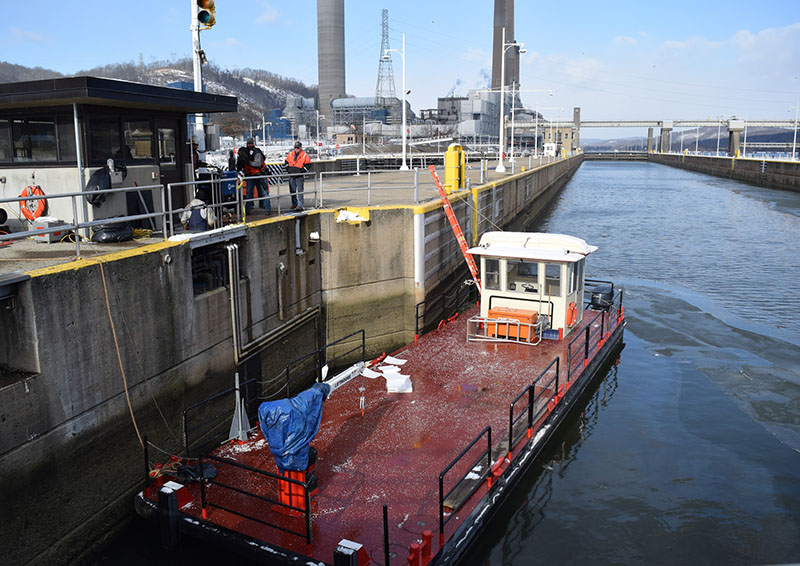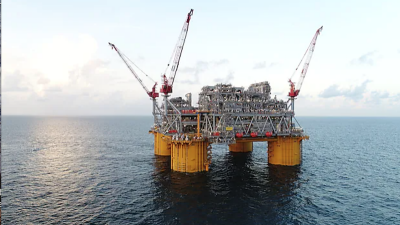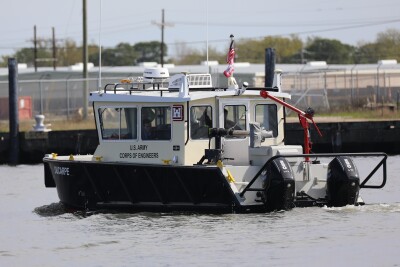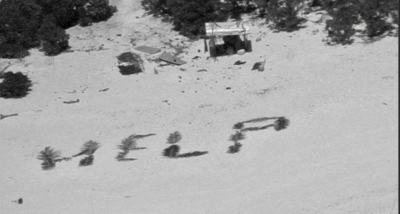The commanding general and chief of engineers of the U.S. Army Corps of Engineers laid out a get-tough approach toward unraveling some of the agency’s burdensome red tape, securing funds for modernizing waterways and completing construction projects now underway.
Speaking to the annual meeting of the Waterways Council Inc., Lt. Gen. Todd T. Semonite told top leaders of the nation’s inland barge industry that one of his goals is “continuing to make sure the waterways are a priority.” He also stated that he “wants to change the Corps of Engineers.”
A perky, can-do figure, Semonite assumed the post in May 2016, replacing Lt. Gen. Thomas P. Bostick. He will serve through May 2020.
Seminote said he has spent the past 10 months visiting Corps districts across the country, including stops at the Chicamauga Lock replacement project, the Kentucky lock addition and the Olmsted Locks and Dam. He has also been learning about the need for waterways improvements and to make the agency more efficient and innovative. He said the Corps has been granted waivers from the federal hiring freeze and is actively hiring “the best and the brightest people.”
Semonite emphasized the importance of delivering construction projects on time and within budget and by finding a balance between navigation and the environment.
During the transition from the Obama to the Trump administration, the Corps “will be steady in the saddle as it tries to figure out the rhetoric from policy.” He said federal money will continue to get tighter, but despite a 16% proposed cut in the Trump administration’s budget blueprint, he’s hopeful that the Corps can maintain its $5 billion annual budget.
Semonite, whose last post was in Afghanistan, said he has met with White House officials to outline his agency’s priorities for 12 projects that should be included in the Trump administration’s promised infrastructure package. When the White House raised concerns about the long permitting process, Seminote said that the Corps also wants to streamline its operations, “but we have our hands tied in many different directions.”
During other presentations during the Waterways Council’s meeting:
- Rep. Garret Graves, R-La., chairman of the House Transportation and Infrastructure subcommittee on Water Resources, said that Homeland Security Secretary John F. Kelly saved the Coast Guard from a proposed 14 percent cut in the Trump administration’s Fiscal 2017 budget plan to Congress. A retired Marine Corps general, Kelly “made it crystal clear that those kinds of cuts are unacceptable for a military organization,” the Baton Rouge Republican said.
- Reforms in the nation’s tax code must be considered along with any national infrastructure plan, Graves said, because those reforms could pave the way for public-private partnerships in infrastructure funding.
- There won’t be serious progress on an infrastructure plan until at least next year, several speakers said, as Congress focuses first on repealing Obama care, tax reform and the federal budget. It will take time to identify priorities and develop workable funding options, they said.
- An advisory committee looking for ways to stop the transfer of aquatic invasive species like the Asian carp from the Great Lakes to the Mississippi River has come up with a solution: strategically locating three treatment chambers within the Chicago Area Waterways. A vessel would enter the chamber, where the water would be treated to kill organisms and then neutralized before the vessel exits. A study by the Nature Conservancy concluded that chlorine would be the most effective treatment. “It kills a wide range of species, and is highly effective in 30 minutes or less,” said David Hamilton of the Conservancy. It would cost about $41 million per chamber.





